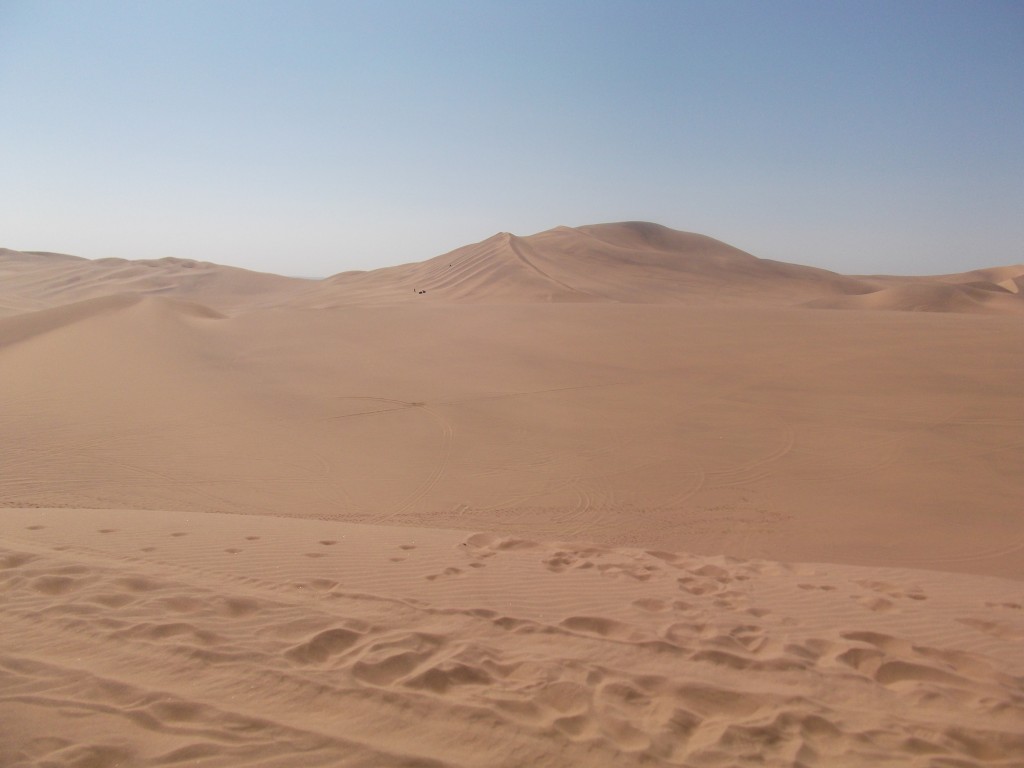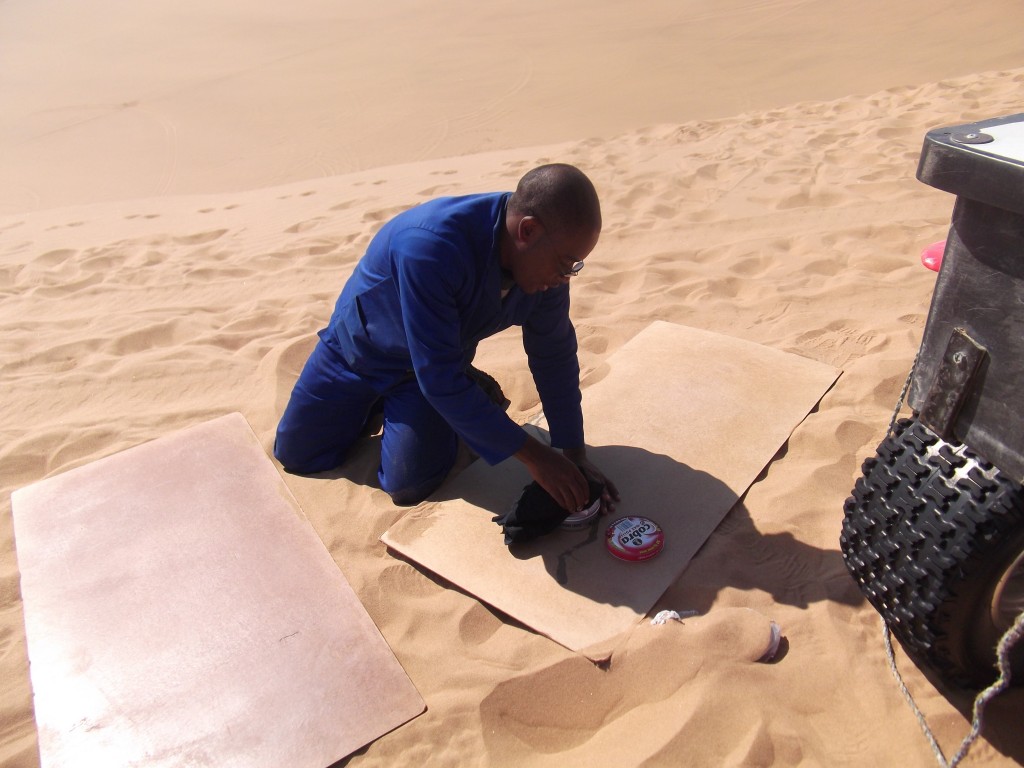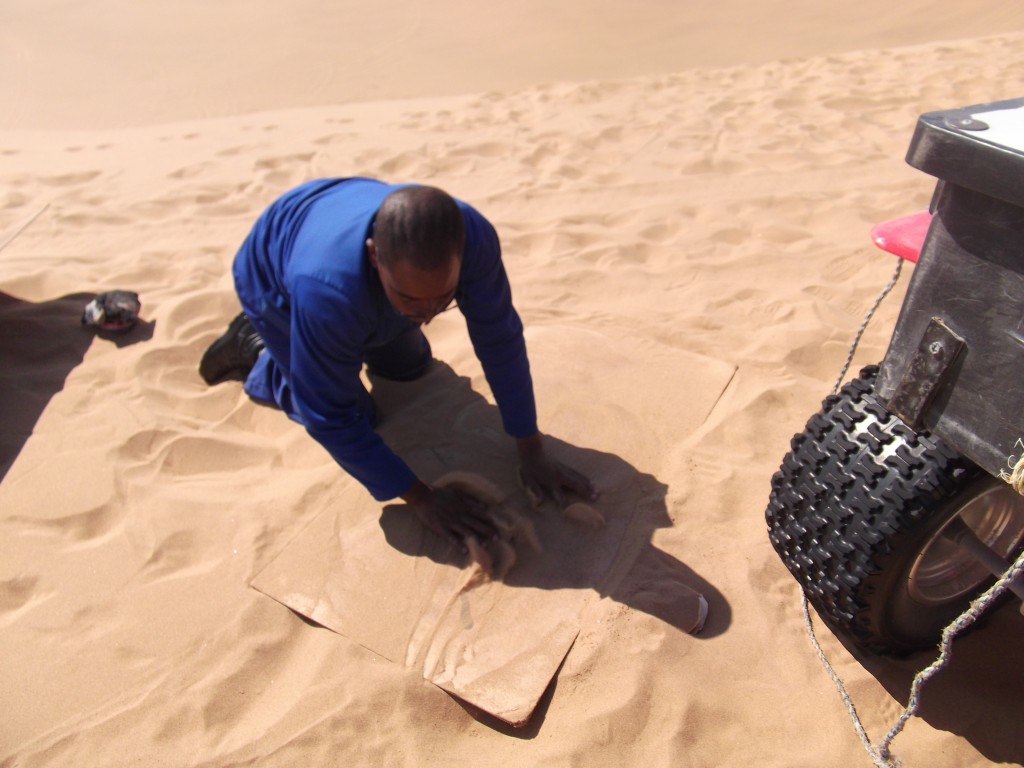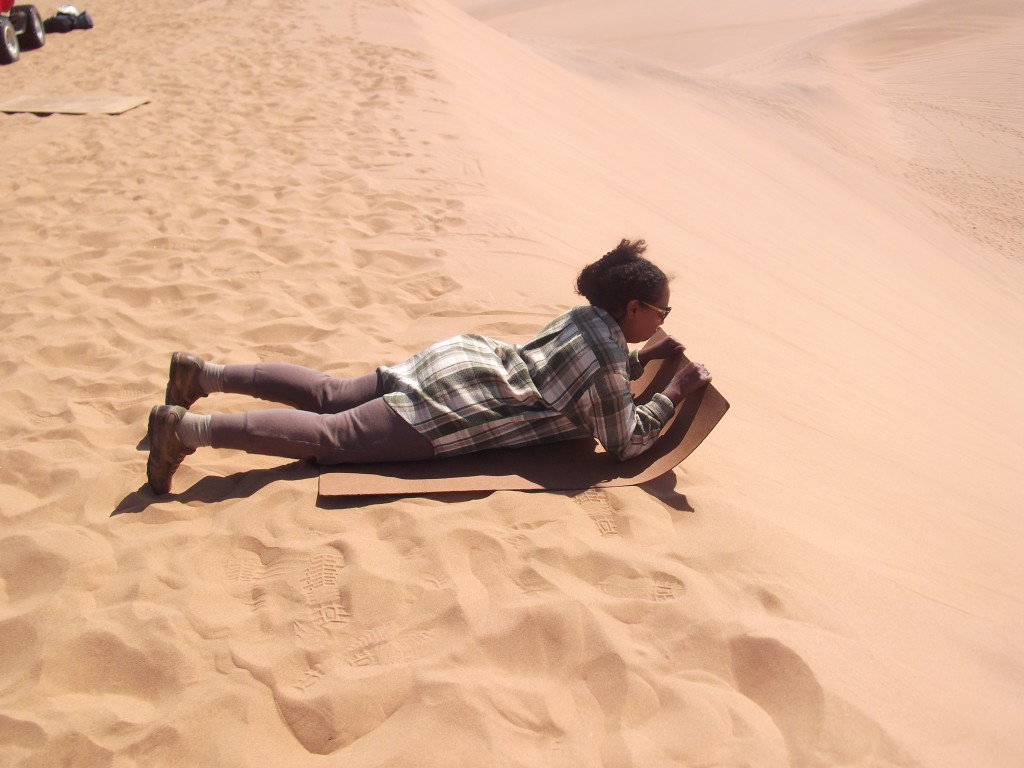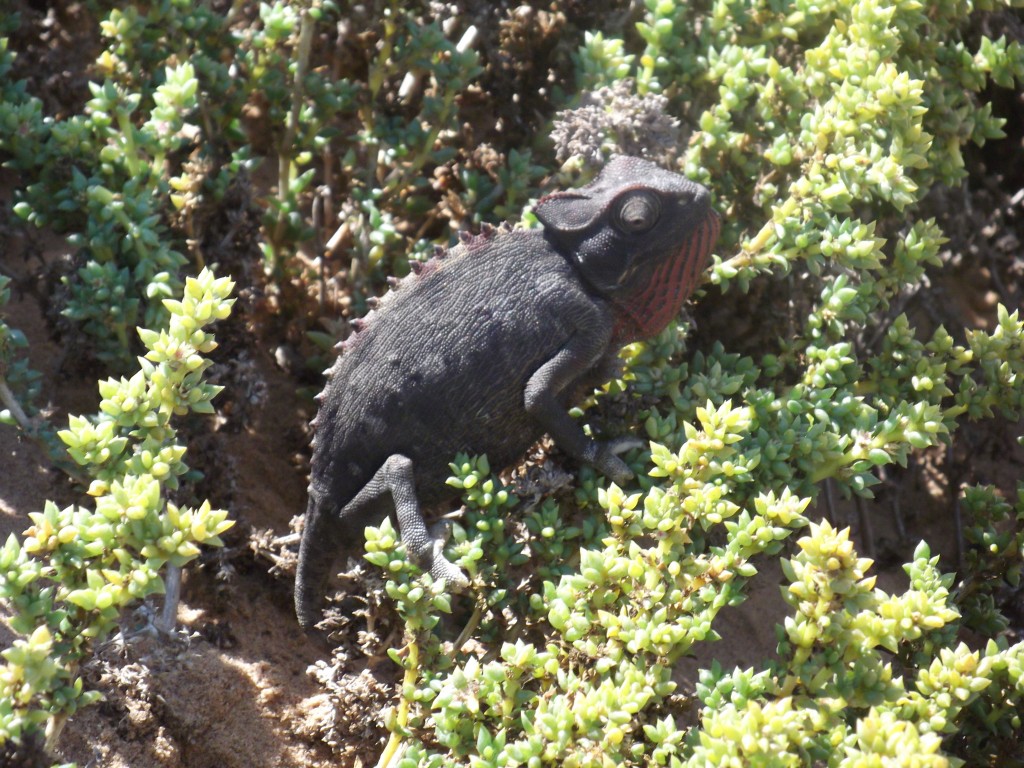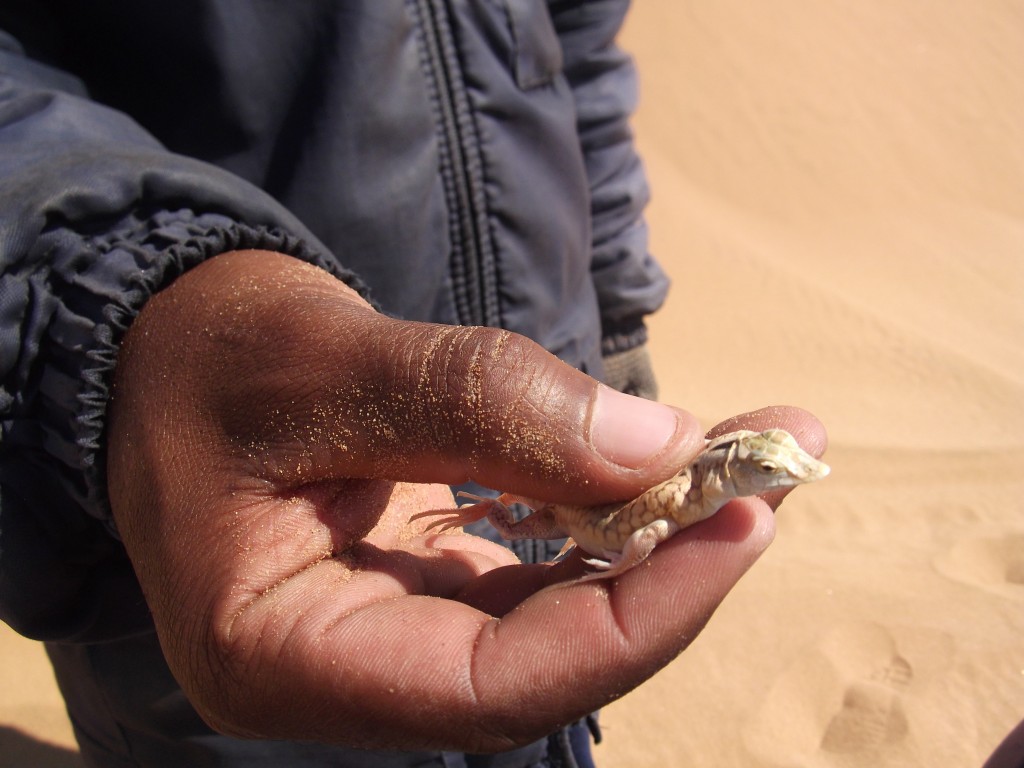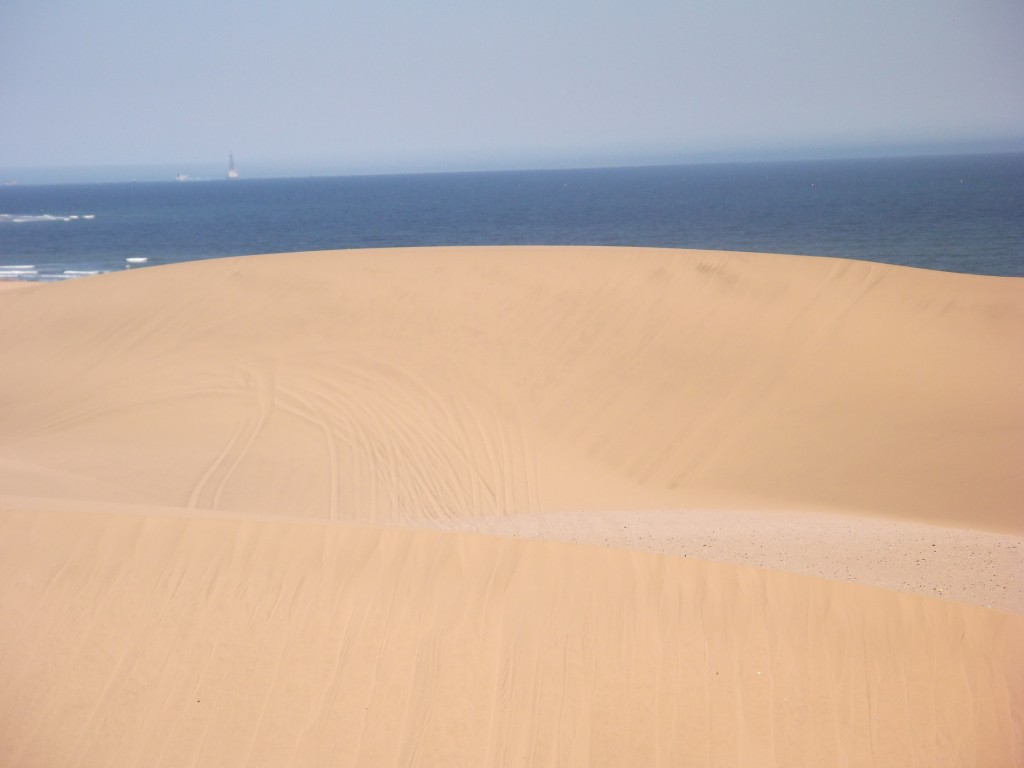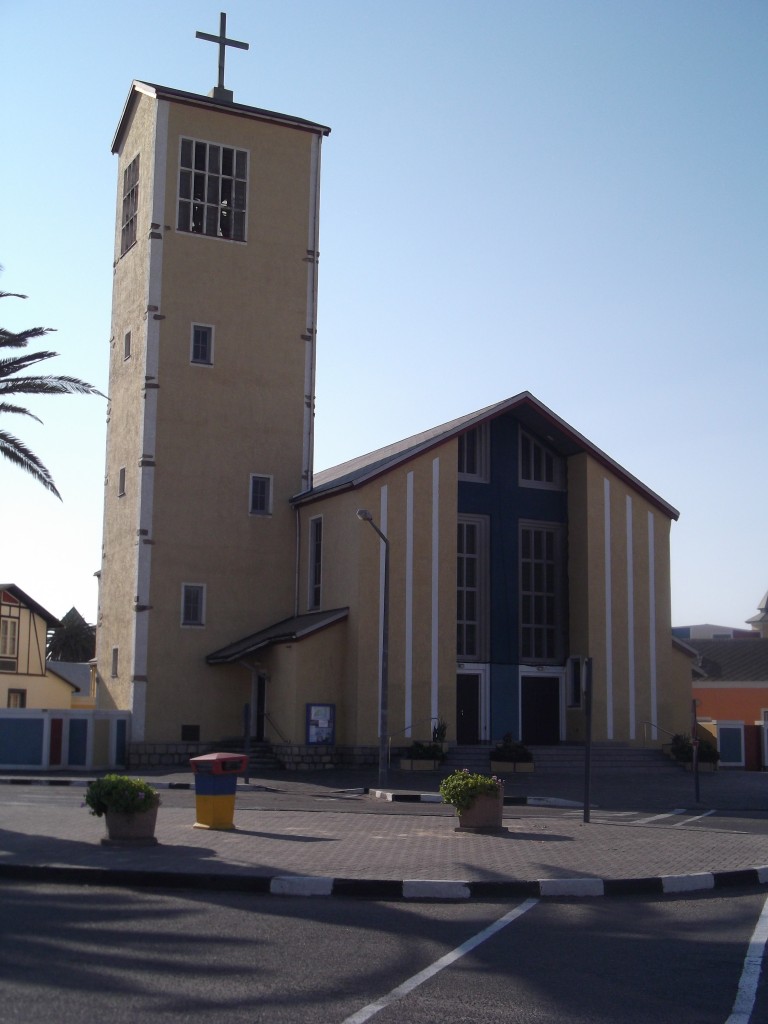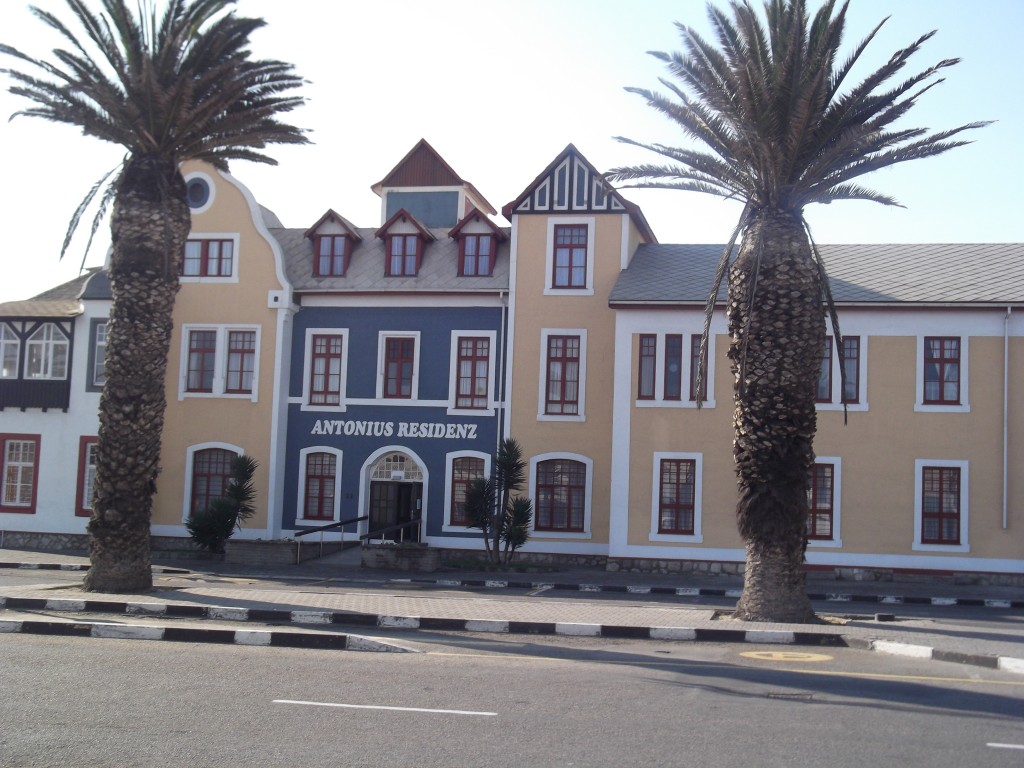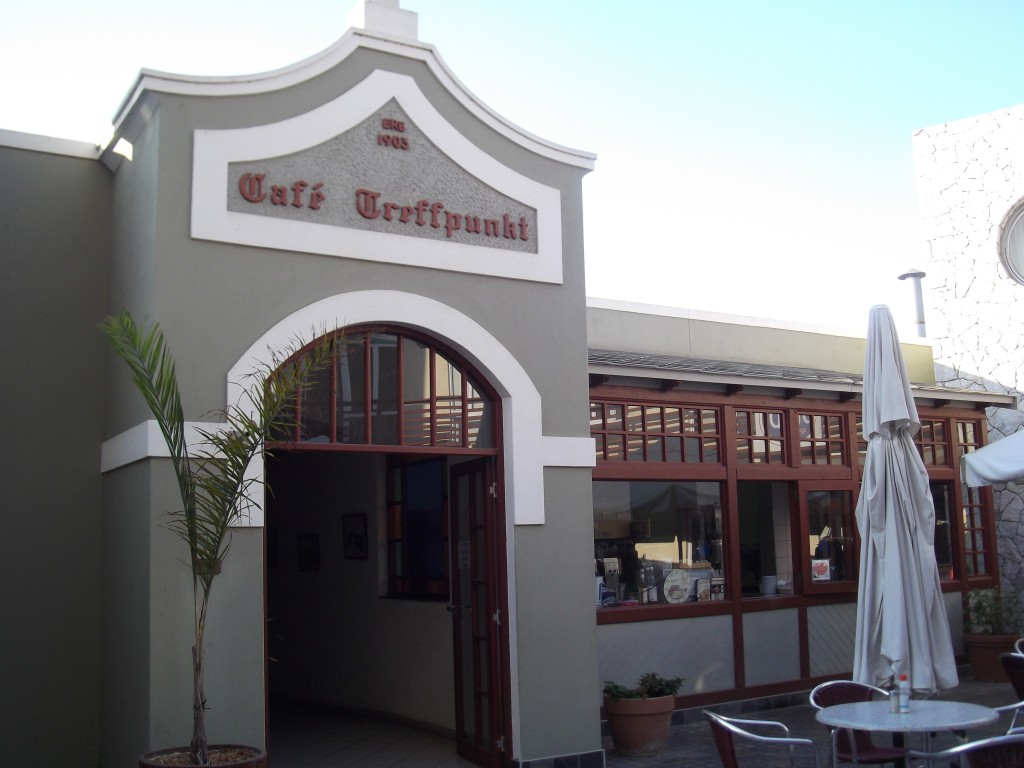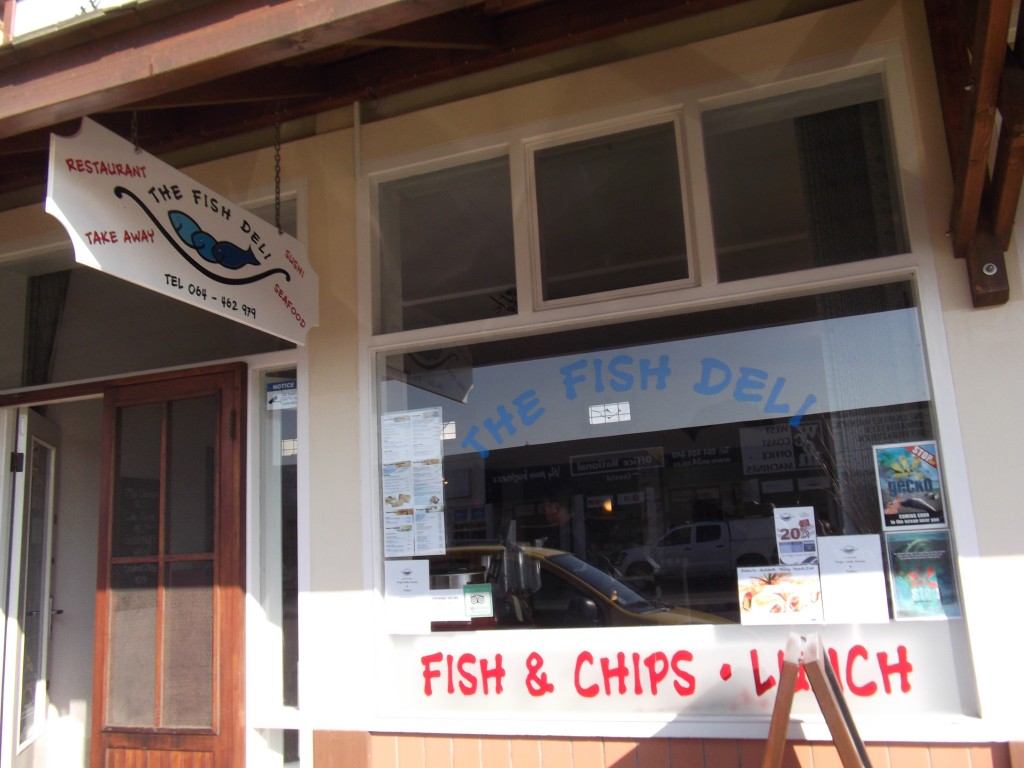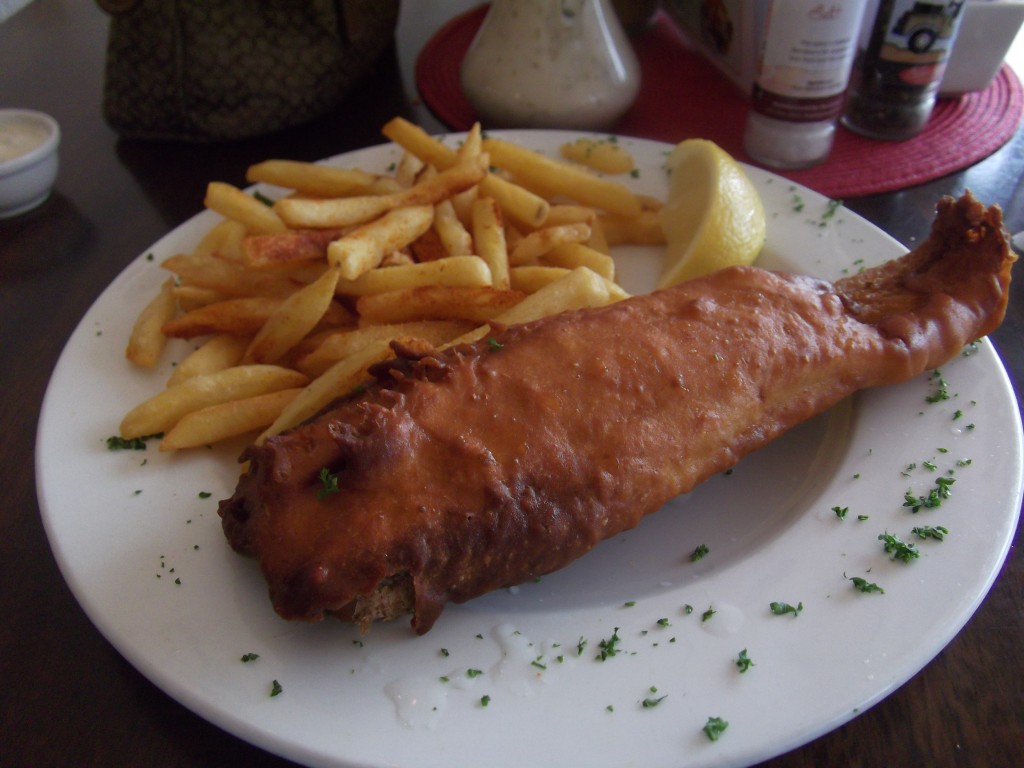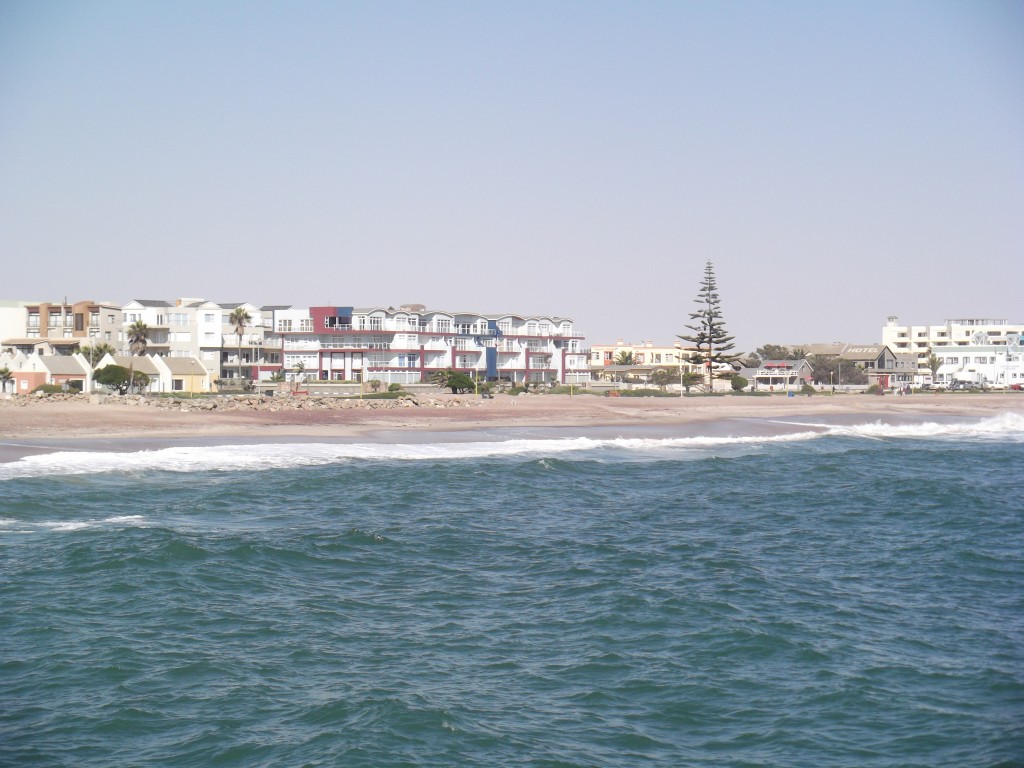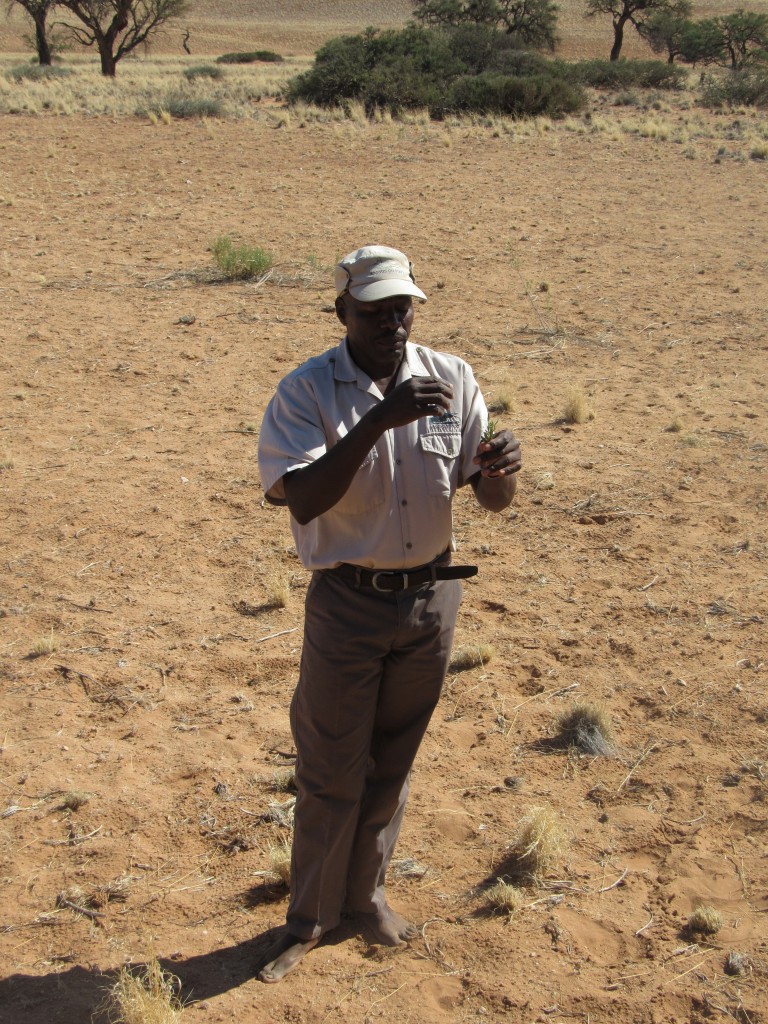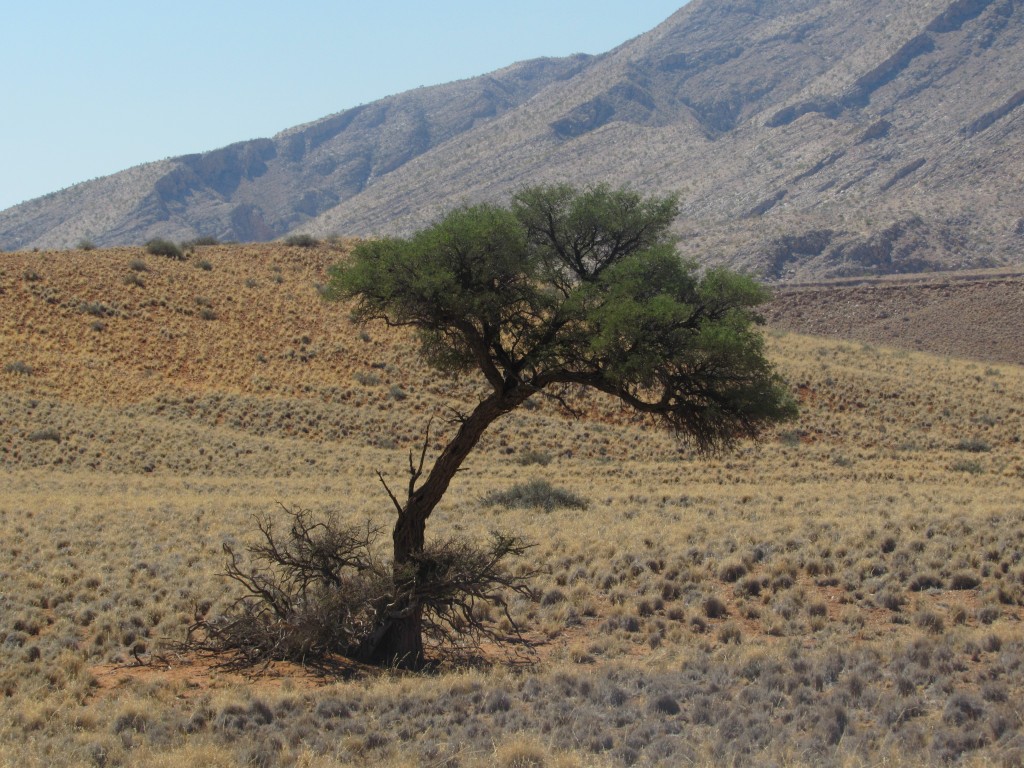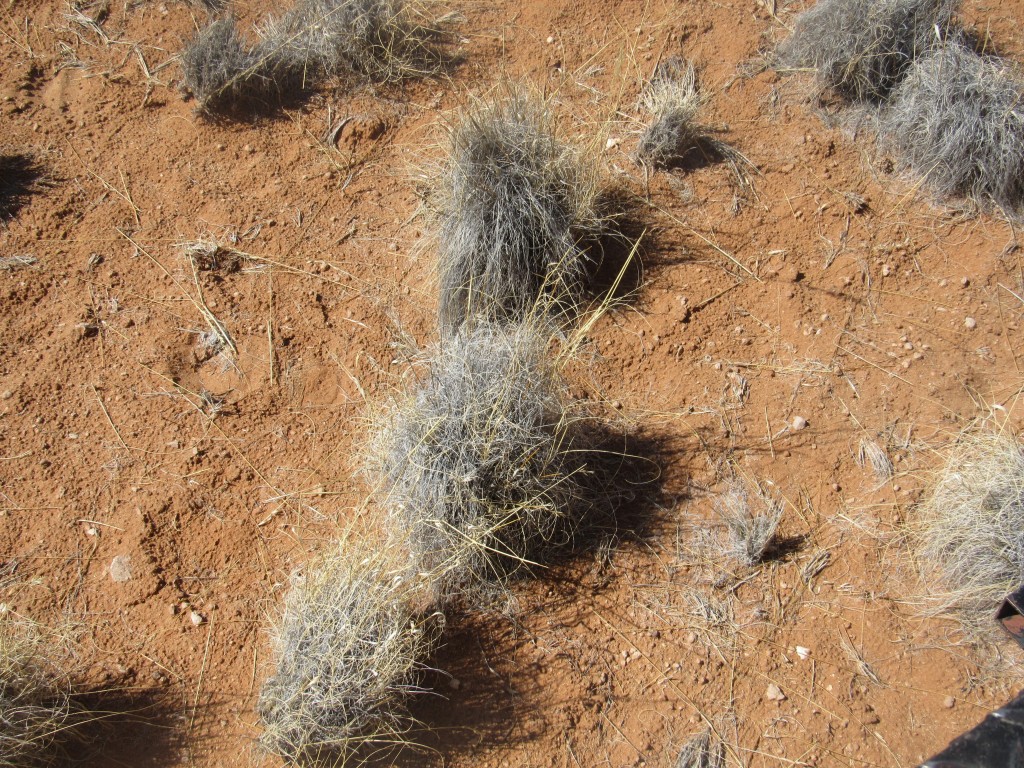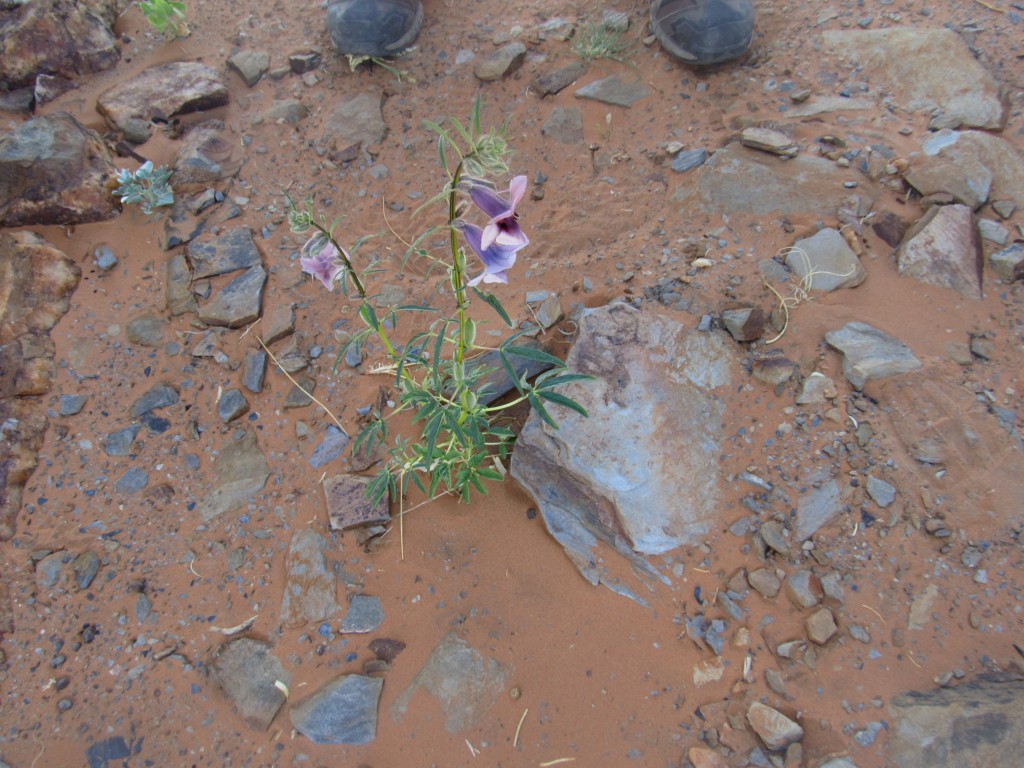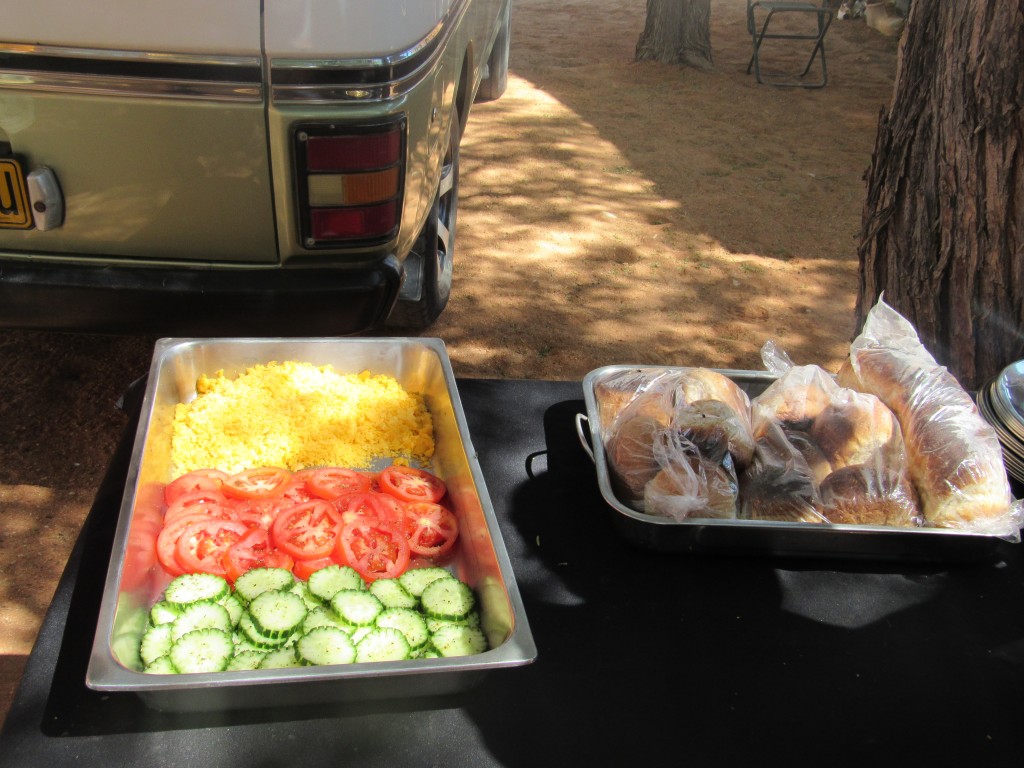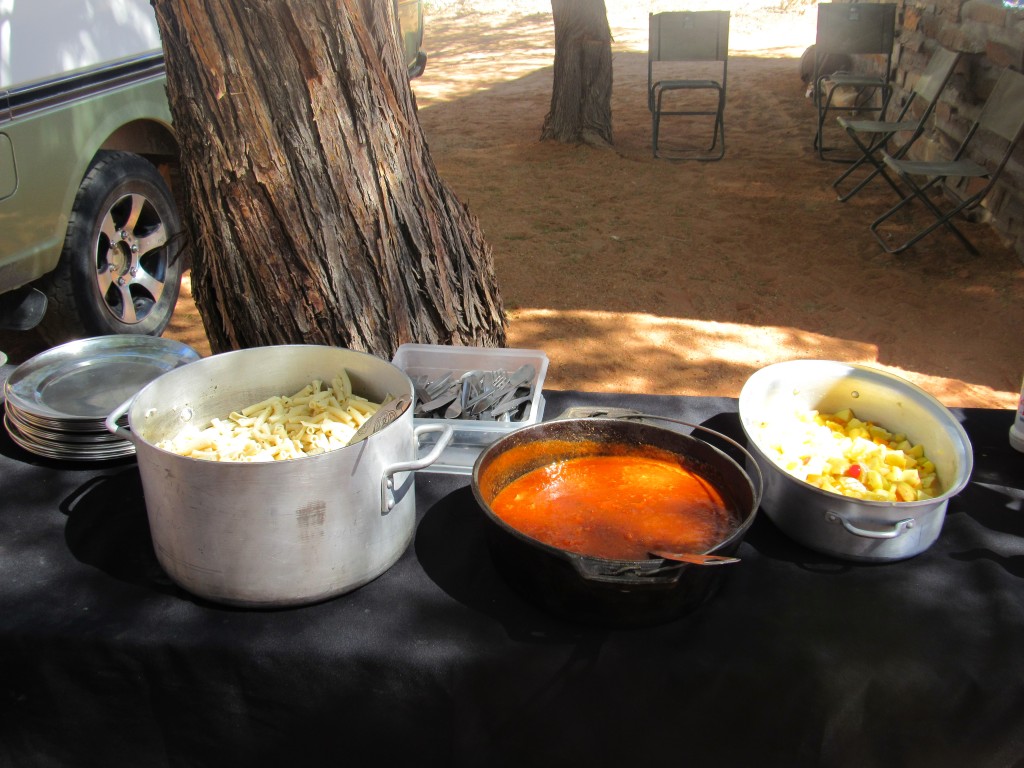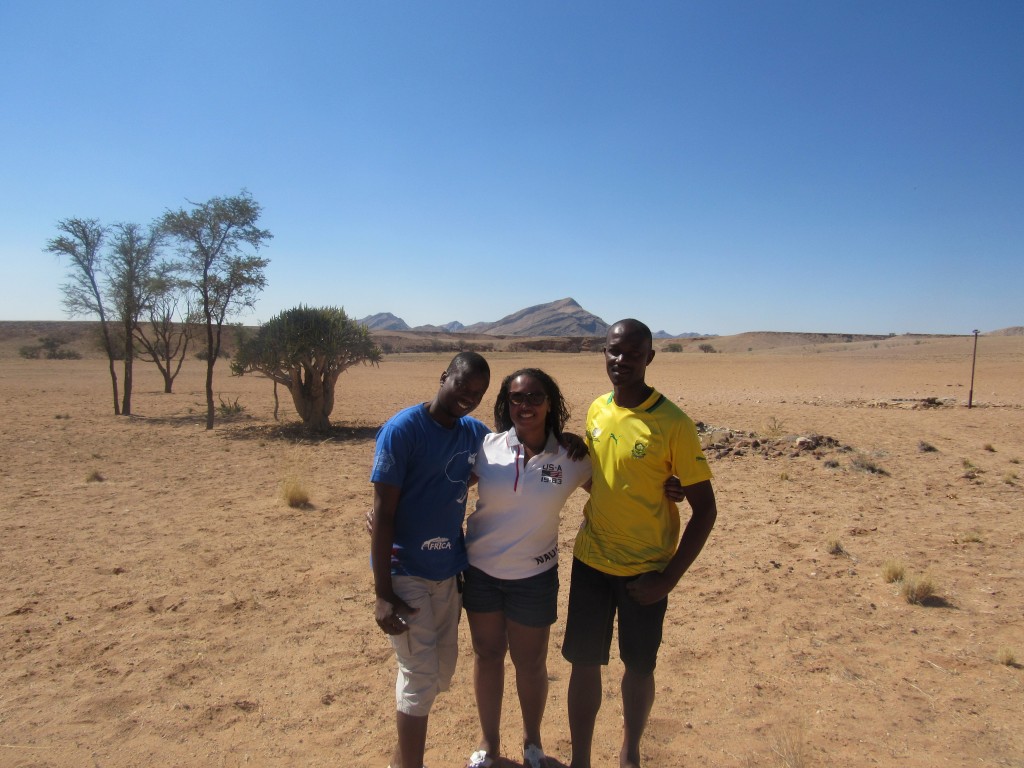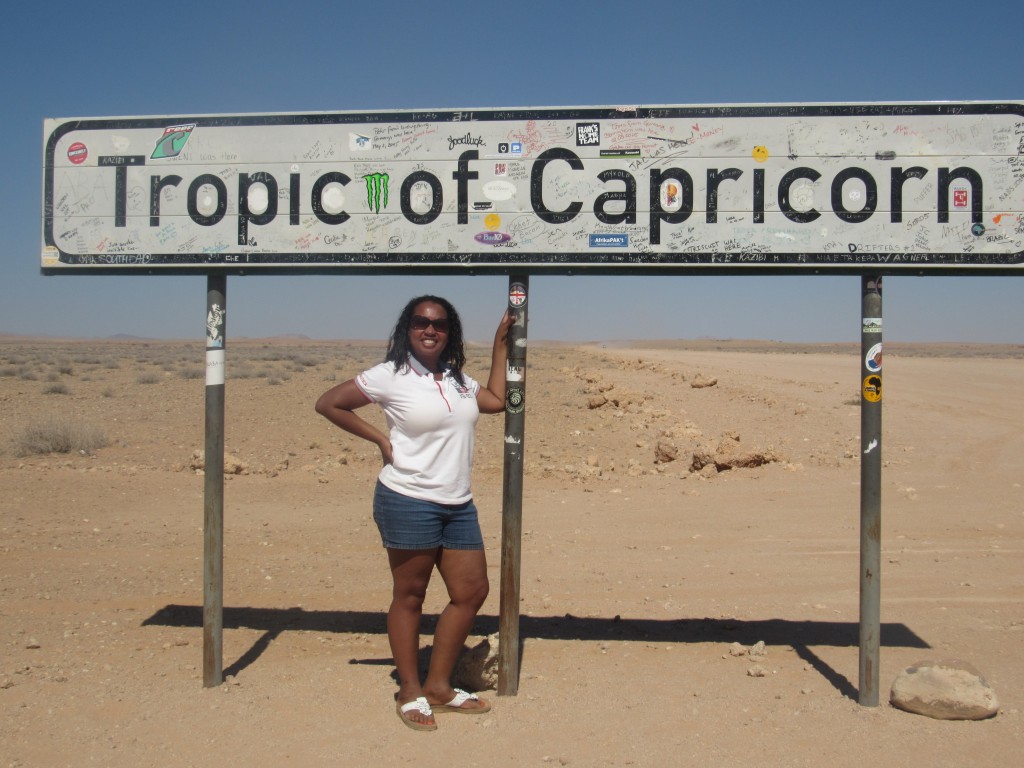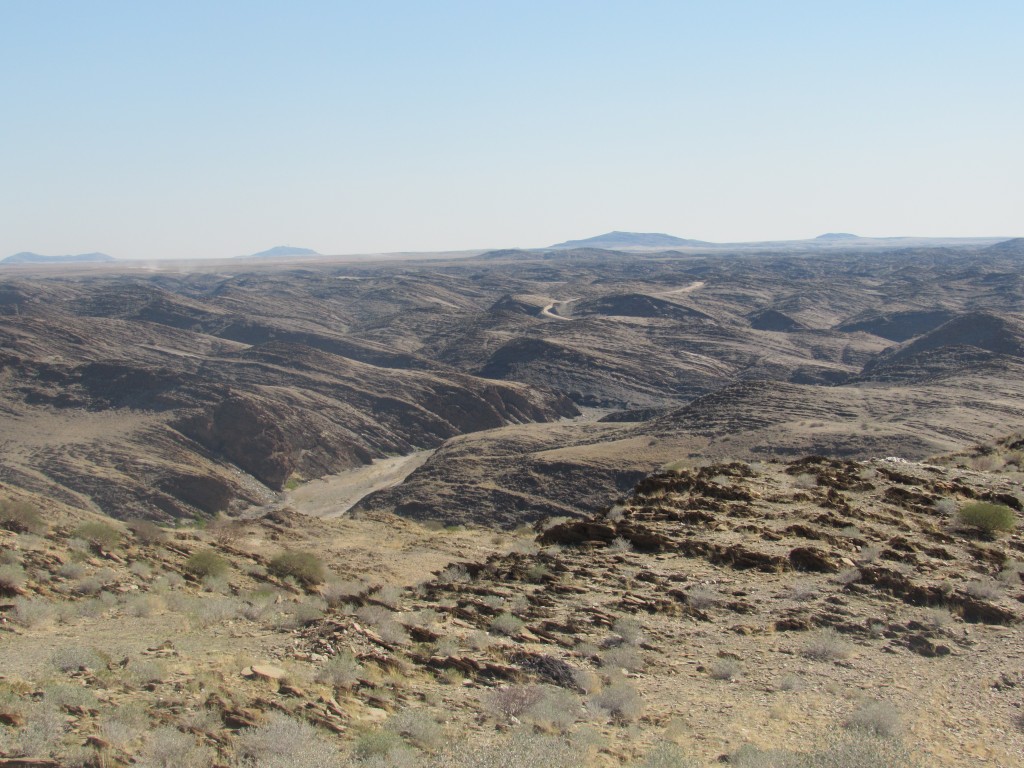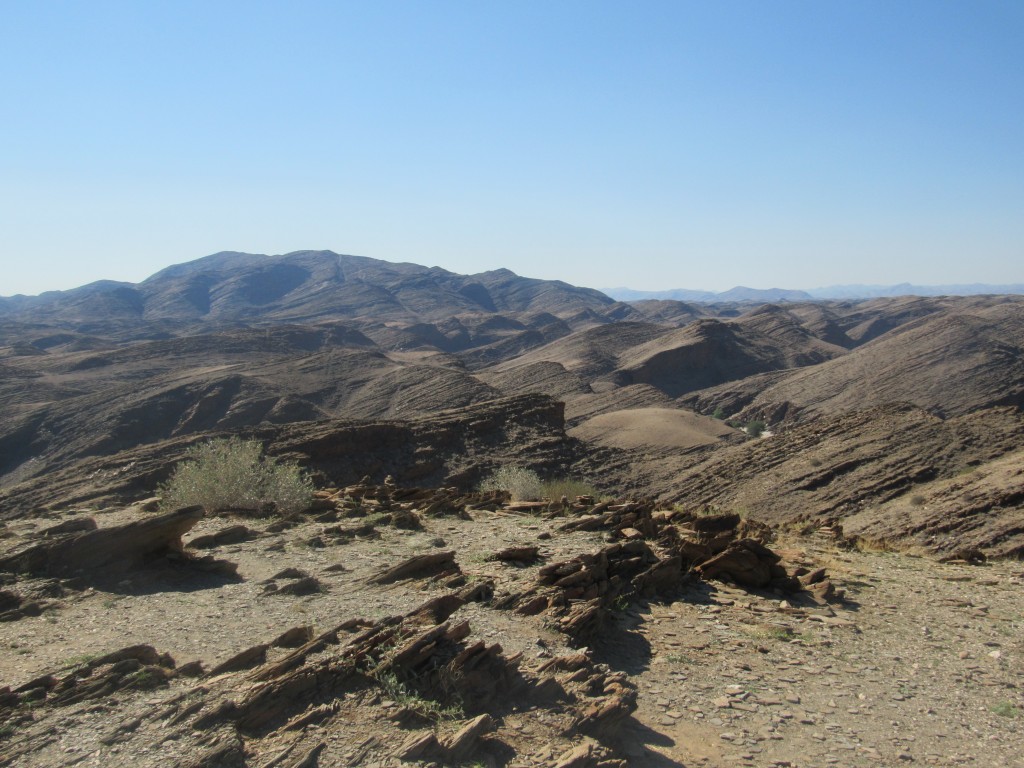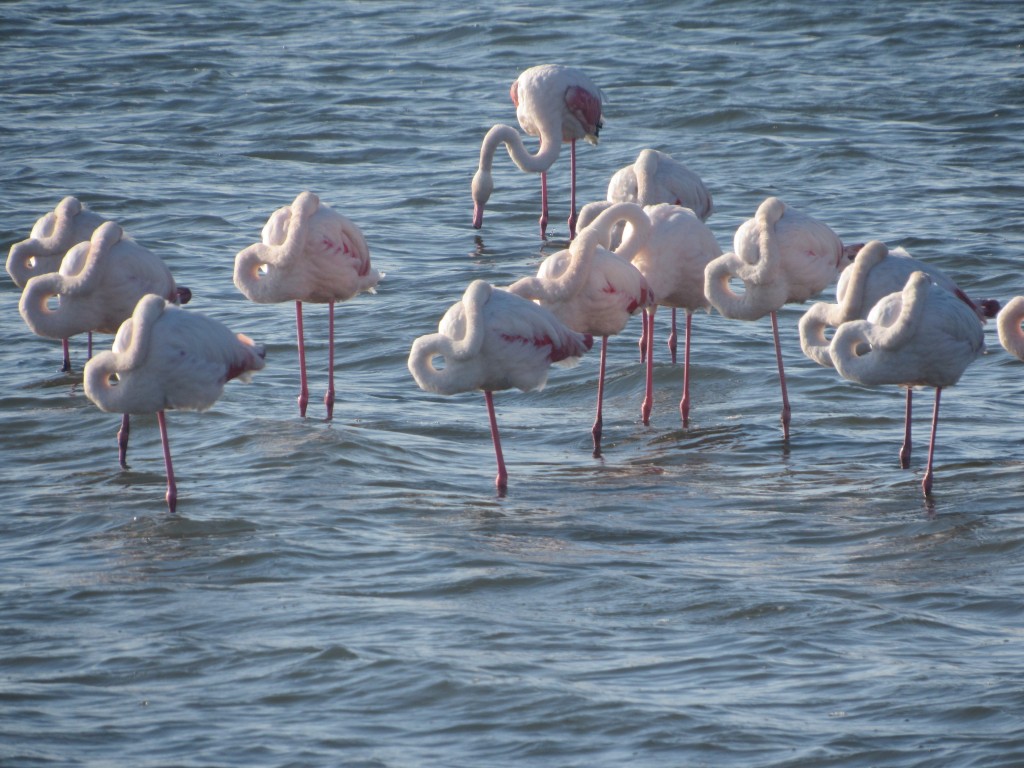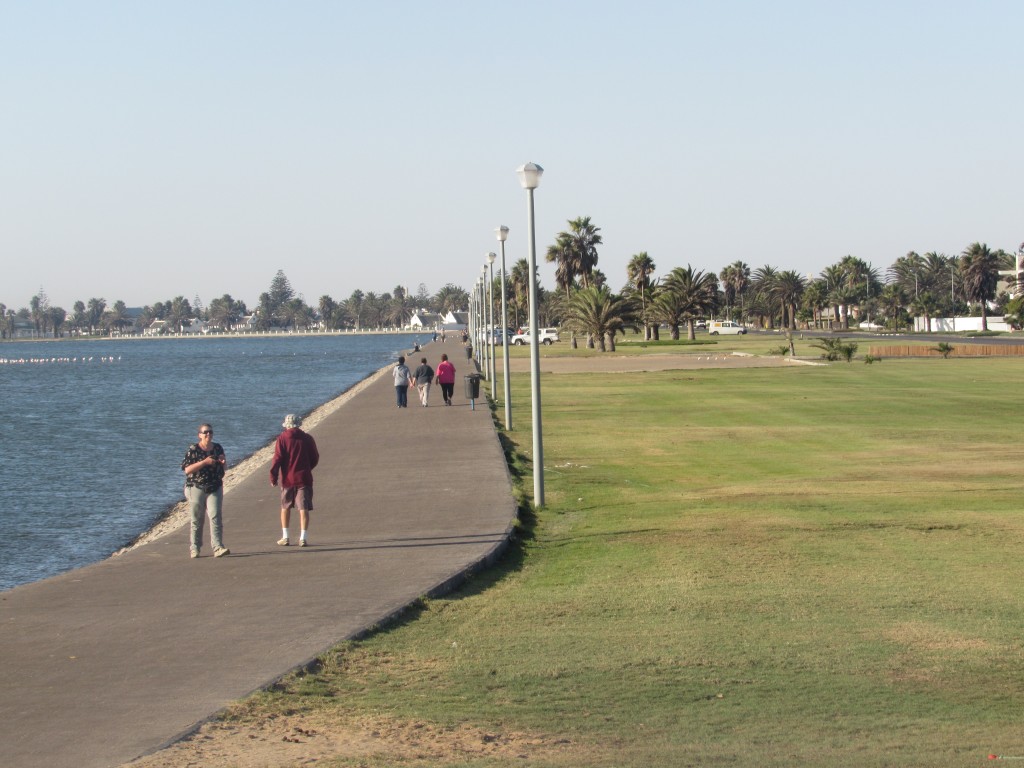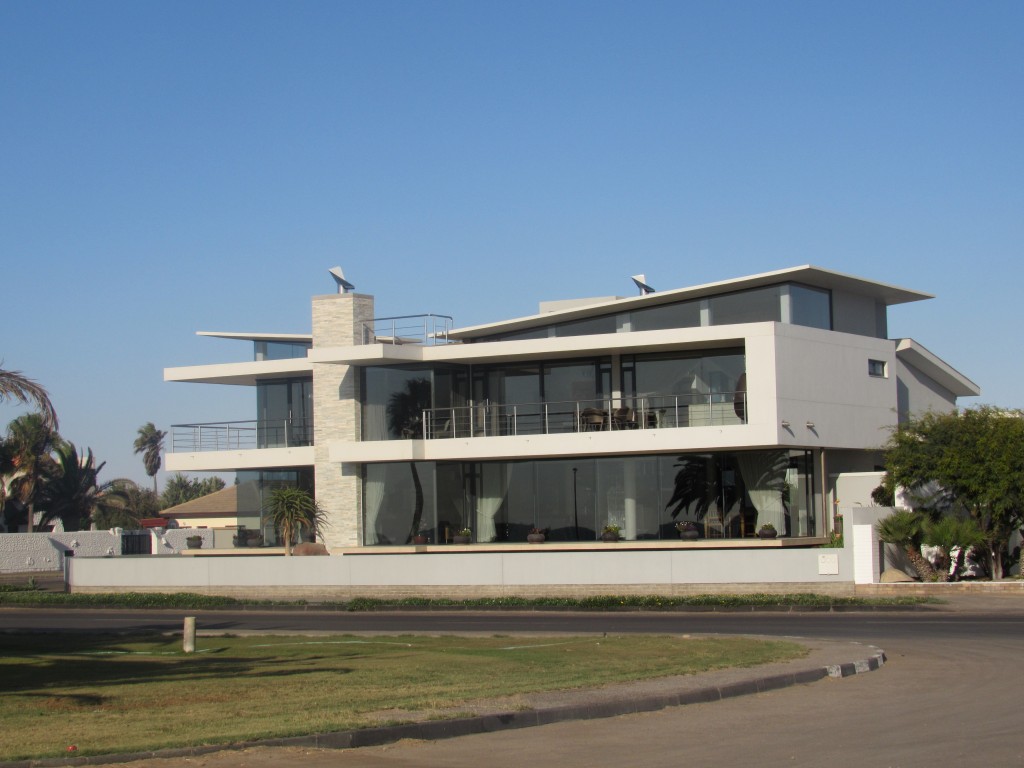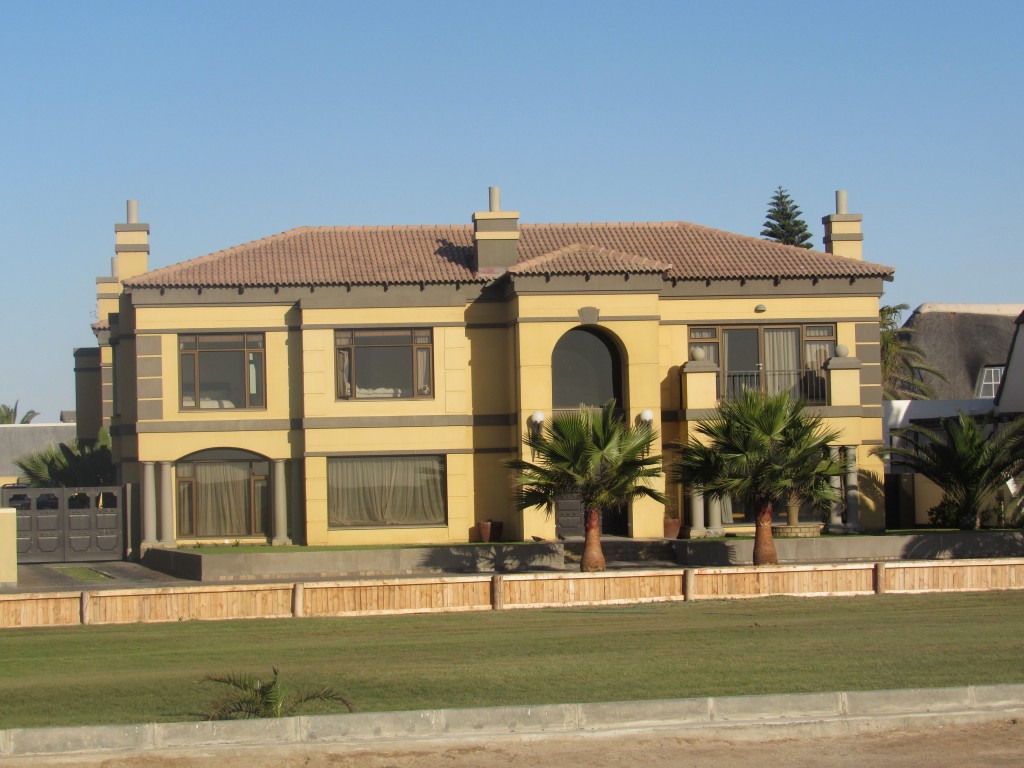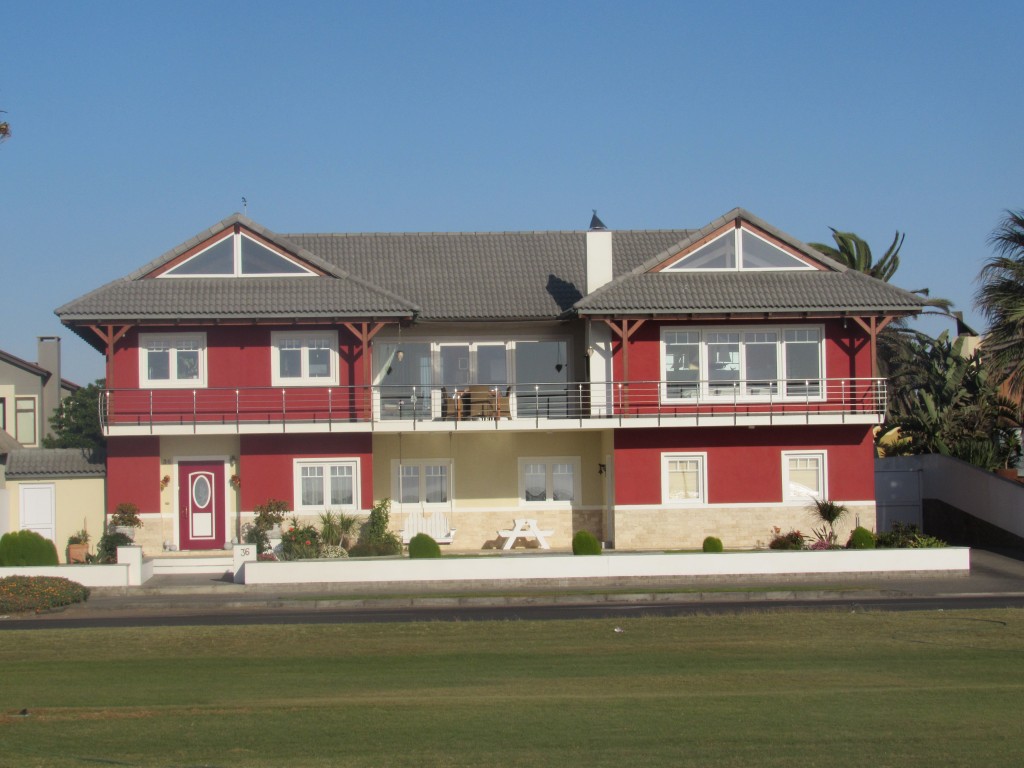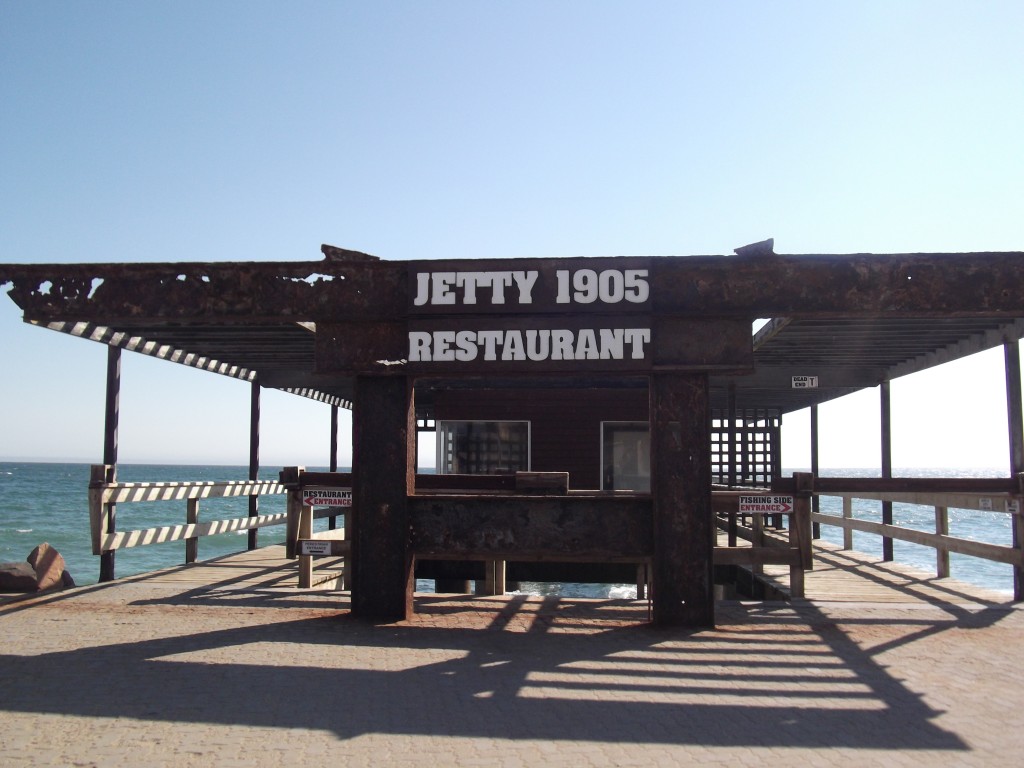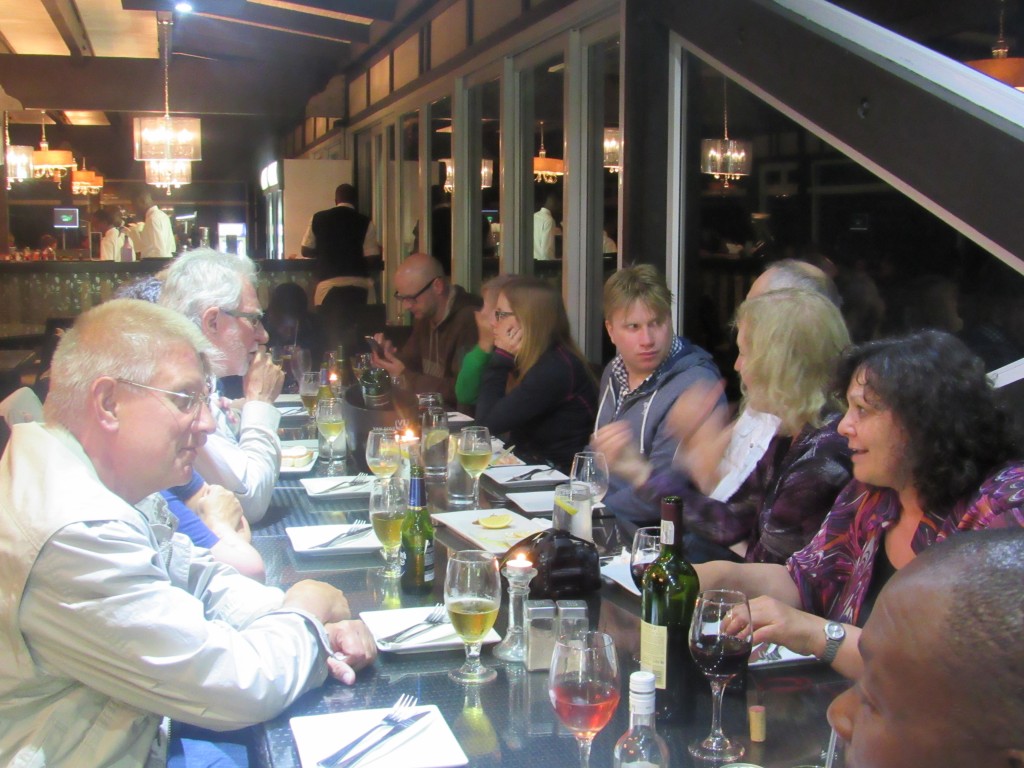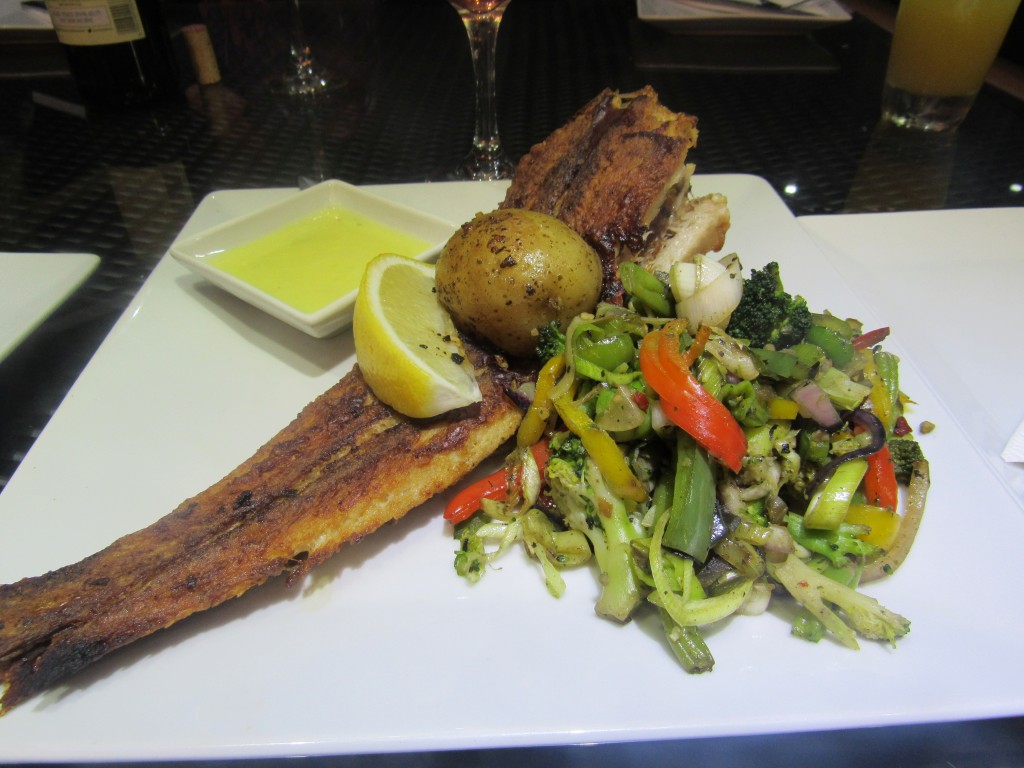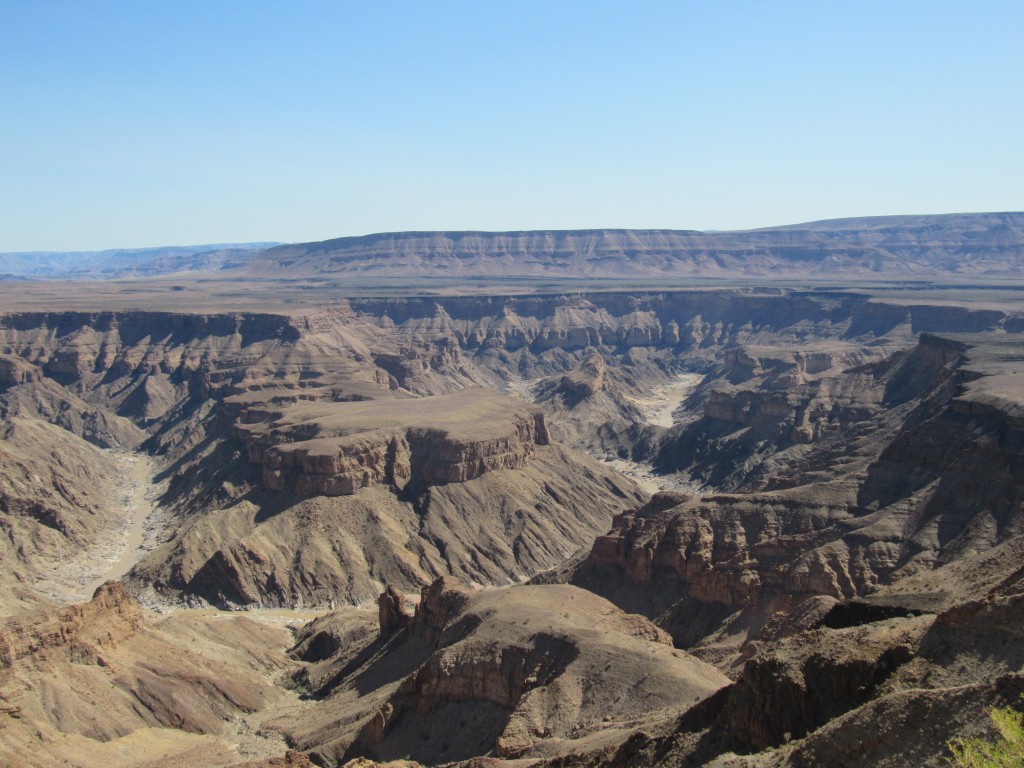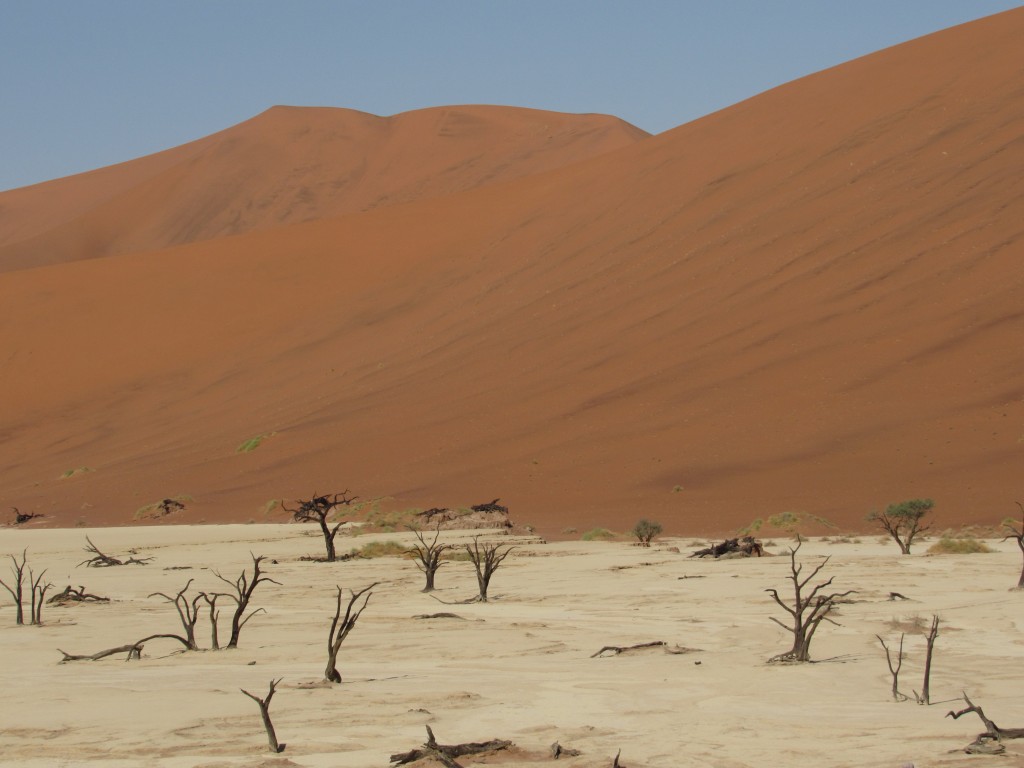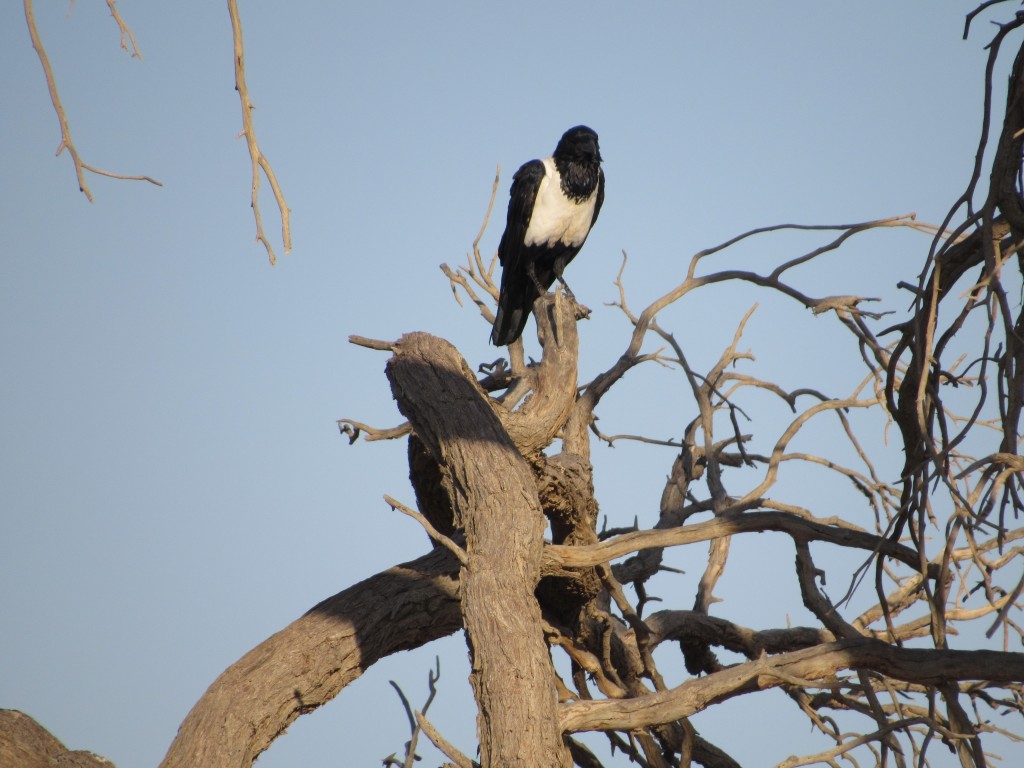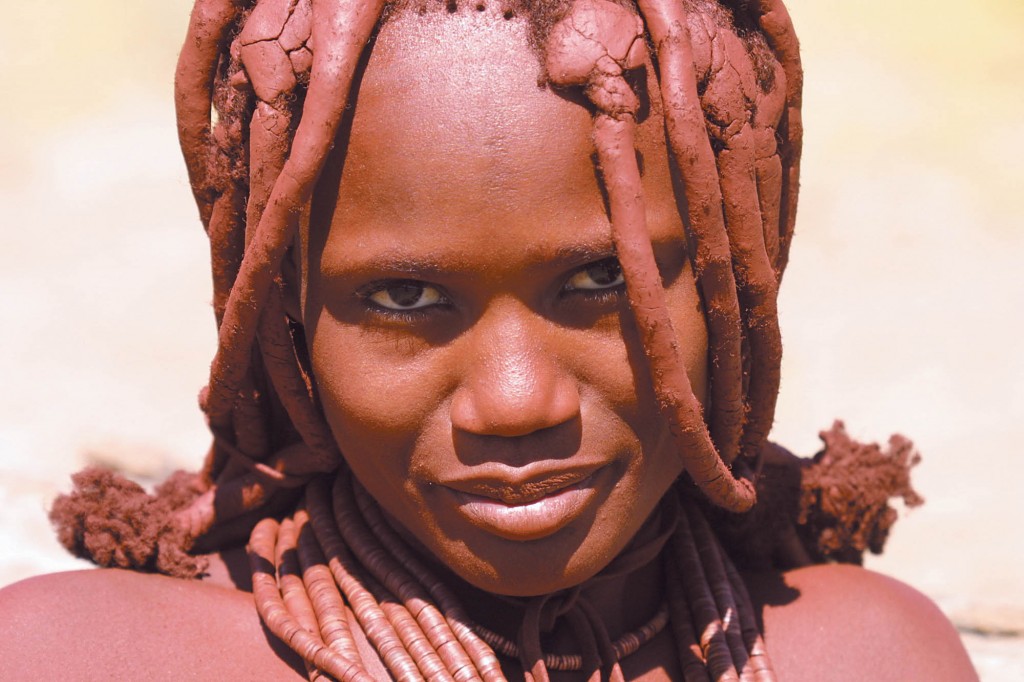The post Namibia Overland: Swakopmund first appeared on The Travel Sista.
]]>I ate a hot cooked breakfast, then left around 9:00 am for my quad biking and sand boarding tour. Lucky for me, I was the only one scheduled and it turned into a private tour. I was fitted for a helmet, then my guide and I hit the sand dunes, riding along a set trail so we wouldn’t injure or kill the protected wildlife there. The landscape was magnificent, but I was hopelessly lost as we traveled deeper and deeper into the maze of sand dunes.
About an hour later, we stopped at one of the larger dunes for my sandboarding adventure. Since it was my first time, I had chosen the “Lie Down” sandboarding style (where you lie on the board and ride the dunes headfirst). My guide waxed the board and rubbed it with sand to prepare it for riding. Then he had me lay down on the board with the front slightly raised and my feet hanging over the back. I was a tad bit nervous and briefly questioned my sanity as I looked down. But I gave the OK and my guide nudged the board sending me off. My adrenaline kicked in as I sailed down the dune at breakneck speed. The ride was exhilarating but over in seconds, and I had to hike back up the dune (which was a chore). I rode down a second time and luckily this time my guide rode me back up on the quad bike.
After two runs, I’d had enough sand boarding and so we took off on the quad bikes to search for desert wildlife. The desert appeared lifeless at first glance, but upon a closer look it was alive with a variety of desert-adapted wildlife. My guide pointed out various hidden animals, including geckos, lizards, beetles, and spiders. The final highlight was seeing where the edge of the desert meets the Atlantic Ocean.
By the end of the ride, I was dirty, full of sand, and ready for a hot shower. After freshening up, I headed off to explore the town of Swakopmund. Situated on Namibia’s coast, Swakopmund is like a little Deutschland in Africa. The German colonial influence is present in the architecture and general ambience, and many of the retail stores and restaurants are German-owned.
I had worked up a serious appetite and stopped for lunch at The Fish Deli, a local seafood restaurant, where I ate fried hake and chips. Later, I walked the sea-front promenade, eating homemade ice cream while viewing the jetty, lighthouse, and exquisite waterfront homes in the area. I would be remiss if I didn’t admit I had mixed emotions about these obvious remnants of colonialism and apartheid.
I spent the last evening talking with one of my tour guides, Alfons, a native Namibian. We talked about past and present Namibian history, his heritage as a member of the Herero tribe, his multilingualism (English, Herero, and Afrikaans, which was required during the apartheid period), and his future plans to return to his village in northern Namibia. I left with a greater understanding of Namibia’s storied past and rich culture, and a strong desire to see more. I look forward to returning.
Have you been to Swakopmund, Namibia’s adventure capital? Did you participate in any adventure activities? Share your comments below.
Share ThisThe post Namibia Overland: Swakopmund first appeared on The Travel Sista.
]]>The post Namibia Overland: Namib Desert to Swakopmund first appeared on The Travel Sista.
]]>After a spectacular Day 5 in the world’s oldest desert, we hit the road early and headed towards our final stop, Swakopmund. En route we made several stops, the first at a farm ranch where we took a guided hike with a local expert. He walked barefoot as he showed us native plants and trees and described how his Bushmen ancestors survived in the harsh desert conditions.
We were fascinated as he shared a story of how he and two friends hiked through the Namib Desert, all the way to the Atlantic Ocean, carrying little food and water. They used dried reeds and empty ostrich eggs to collect water underneath the earth, then buried the eggs along the trail for their return trek back. Contrary to conventional wisdom, he said they drank limited water because excess consumption would lead to abdominal issues and exhaustion in the hot desert sun. Our excursion ended with a discussion of Namibia’s colonial history and another great lunch prepared by our guides.
Next, we stopped at the Tropic of Capricorn sign, which bore special significance to me since Capricorn is my zodiac sign. From there, we stopped at the Moon Landscape, so named for its distinctive moon-like topography. Barren and desolate, the Moon Landscape was formed when the Swakop River carved deep canyons into the granite rock. It was a stark reminder of nature’s power and beauty.
We continued on to Walvis Bay, where we briefly stopped to walk along the seafront promenade and see the resident flamingos on the lagoon. This also gave us the perfect opportunity to view the extravagant waterfront mansions.
Thirty minutes later we made it to Swakopmund and our first stop was at Desert Explorers, an activity center which offers a variety of adventure activities including skydiving, quad biking, paragliding and sandboarding. I couldn’t leave Namibia’s adventure capital without indulging, so I chose a 3-hour combo quad biking and sandboarding tour for 9:00 a.m. the next morning.
By mid-afternoon, we finally arrived at our B&B, Stay @ Swakop Guesthouse, where I chilled until dinner. Our last group dinner was at Jetty 1905, a fancy restaurant located at the end of a landmark jetty that reaches out some 900 feet into sea. I had wine and grilled sole, served with potatoes and a vegetable medley, all of which was delicious. It was a fun evening with my new friends.
Stayed tuned for Day 7
Have you traveled to Namibia? What was your favorite thing to do? Share your comments below.
Share ThisThe post Namibia Overland: Namib Desert to Swakopmund first appeared on The Travel Sista.
]]>The post The Top 7 Things to See and Do in Namibia first appeared on The Travel Sista.
]]>- Fish River Canyon
Located in southern Namibia, the Fish River Canyon is Africa’s largest canyon and second in size only to the Grand Canyon in Arizona. Unlike the Grand Canyon which was formed by water erosion, the Fish River Canyon was formed by the collapse of the valley bottom due to movements in the earth’s crust. The canyon offers magnificent views and photo opportunities. For the adventurist traveler, the Fish River Canyon hiking trail offers a challenging hike which covers a distance of 54 miles over 5 days in the base of the canyon. Since there are no facilities, hikers must carry all supplies on their back and find water in semi-permanent pools. Because of its arduous nature, a medical certificate of fitness is required before hikers can commence the hike.
- Namib-Naukluft National Park
The Namib-Naukluft National Park encompasses part of the Namib Desert (considered the world’s oldest desert) and the Naukluft mountain range. The most well-known and visited area of the park is Sossuvlei, a salt and clay pan surrounded by massive red sand dunes. Other landmarks in the park include Deadvlei, Hiddenvlei, Sesriem, the petrified dunes, Dune 45, and Big Daddy (the largest sand dune in the area at 1066 feet). The desert scenery is stunning and the area provides the perfect backdrop for amateur and professional photographers alike.
- Swakopmund
Swakopmund is known as Namibia’s adventure capital and for good reason. Popular extreme sport activities include sand boarding, quad-biking, hot air ballooning, dune skiing, skydiving, kite surfing, paragliding, and power kiting, among others. In the city, German buildings adorn the palm-tree lined streets and serve as a stark reminder of the city’s colonial past. The feel is more like a German village rather than an African city. Popular landmarks in the seaside town include the Swakopmund lighthouse and the jetty, which houses two waterfront restaurants.
- Walvis Bay
Walvis Bay is Namibia’s main harbor town and is best known for the colony of flamingos that make their home on the city’s lagoon. Other attractions include Bird Island, a man-made structure inhabited by 200,00 birds and used for the production of guano, and Dune 7, the highest sand dune in the area. A unique experience is the 30 mile drive over sand dunes to Sandwich Harbor, a freshwater lagoon is surrounded by dunes. Sandwich Harbor is a sanctuary for large numbers of coastal and fresh water birds. A four-wheel drive vehicle and entry permit is required.
- Etosha National Park
Located in northwestern Namibia and spanning an area of 8,600 square miles, Etosha National Park is Namibia’s prime wildlife location. Etosha, which means “great white place” in the language of the Ovambo tribe, is dominated by a massive salt pan which covers about 25% of the park. Etosha is home to hundreds of species of mammals, birds and reptiles, including elephants, giraffes, lions, buffalo, leopards, zebras, cheetahs, and the endangered black rhinoceros. The abundant wildlife gives you almost guaranteed game sightings. The park has several lodges and camping facilities, all of which have game-proof fencing. An added plus is that the park is malaria-free.
- Kunene region/The Himba Tribe
The Himba are an ancient tribe of semi-nomadic herders who live in the Kunene region, in the barren northwest region of Namibia. Because of the harsh desert climate and their seclusion from outside influences, the Himba have managed to preserve much of their culture and traditional lifestyle. Himba men and woman typically wear only a loin cloth or goat skinned mini-skirt. Himba women are known for their use of otjize, a paste of butter, fat and red ochre which they apply to their hair and skin, and which gives their appearance a distinctive red hue. Due to their secluded location and lifestyle, the Himba are best visited with a local guide who can communicate in their OtjiHimba language.
- Windhoek
Windhoek is the capital and largest city in Namibia. The city is clean and modern, albeit small as far as capital cities go. Due to its close proximity to Hosea Kutako International Airport, most tourists will begin or end their visit in Windhoek. Notable landmarks include Zoo Park, the National Library of Namibia, the Supreme Court of Namibia, the three castles of Windhoek, Tintenpalast (German for Ink Palace and the seat of both chambers of the legislature), and the National Museum of Namibia (which has interesting displays on Namibia’s independence movement and anti-apartheid struggle). Windhoek is also home to Namibia’s brewing industry and several shopping malls.
Have you visited Namibia? What was your favorite thing to see or do? Share your comments below.
Share ThisThe post The Top 7 Things to See and Do in Namibia first appeared on The Travel Sista.
]]>